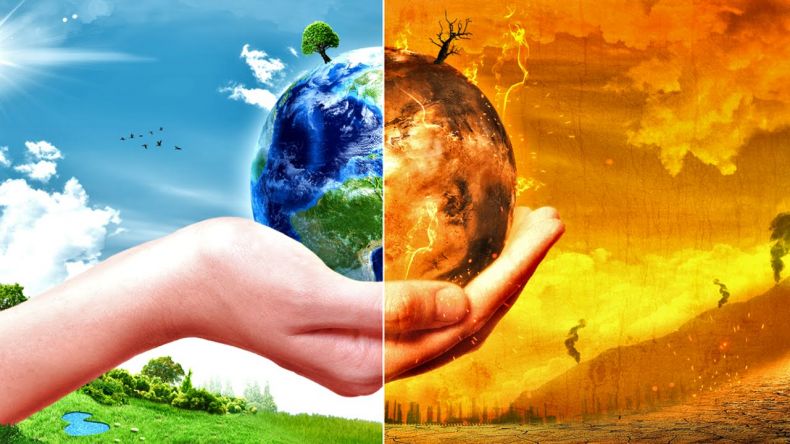For most of human history, about 300,000 years, we lived as hunter gatherers in sustainable, egalitarian communities of a few dozen people. Human life on Earth, and our place within the planet’s biophysical systems, changed dramatically with the Holocene, a geological epoch that began about 12,000 years ago. An unprecedented combination of climate stability and warm temperatures made possible a greater dependence on wild grains in several parts of the world. Over the next several thousand years, this dependence led to agriculture and large-scale state societies. These societies show a common pattern of expansion and collapse. Industrial civilization began a few hundred years ago when fossil fuel propelled the human economy to a new level of size and complexity. This change brought many benefits, but it also gave us the existential crisis of global climate change. Climate models indicate that the Earth could warm by 3°C-4 °C by the year 2100 and eventually by as much as 8 °C or more. This would return the planet to the unstable climate conditions of the Pleistocene when agriculture was impossible. Policies could be enacted to make the transition away from industrial civilization less devastating and improve the prospects of our hunter-gatherer descendants. These include aggressive policies to reduce the long-run extremes of climate change, aggressive population reduction policies, rewilding, and protecting the world’s remaining indigenous cultures.
The views and opinions expressed through the MAHB Website are those of the contributing authors and do not necessarily reflect an official position of the MAHB. The MAHB aims to share a range of perspectives and welcomes the discussions that they prompt.Our hunter-gatherer future: Climate change, agriculture and uncivilization
| December 19, 2019 | Leave a Comment

